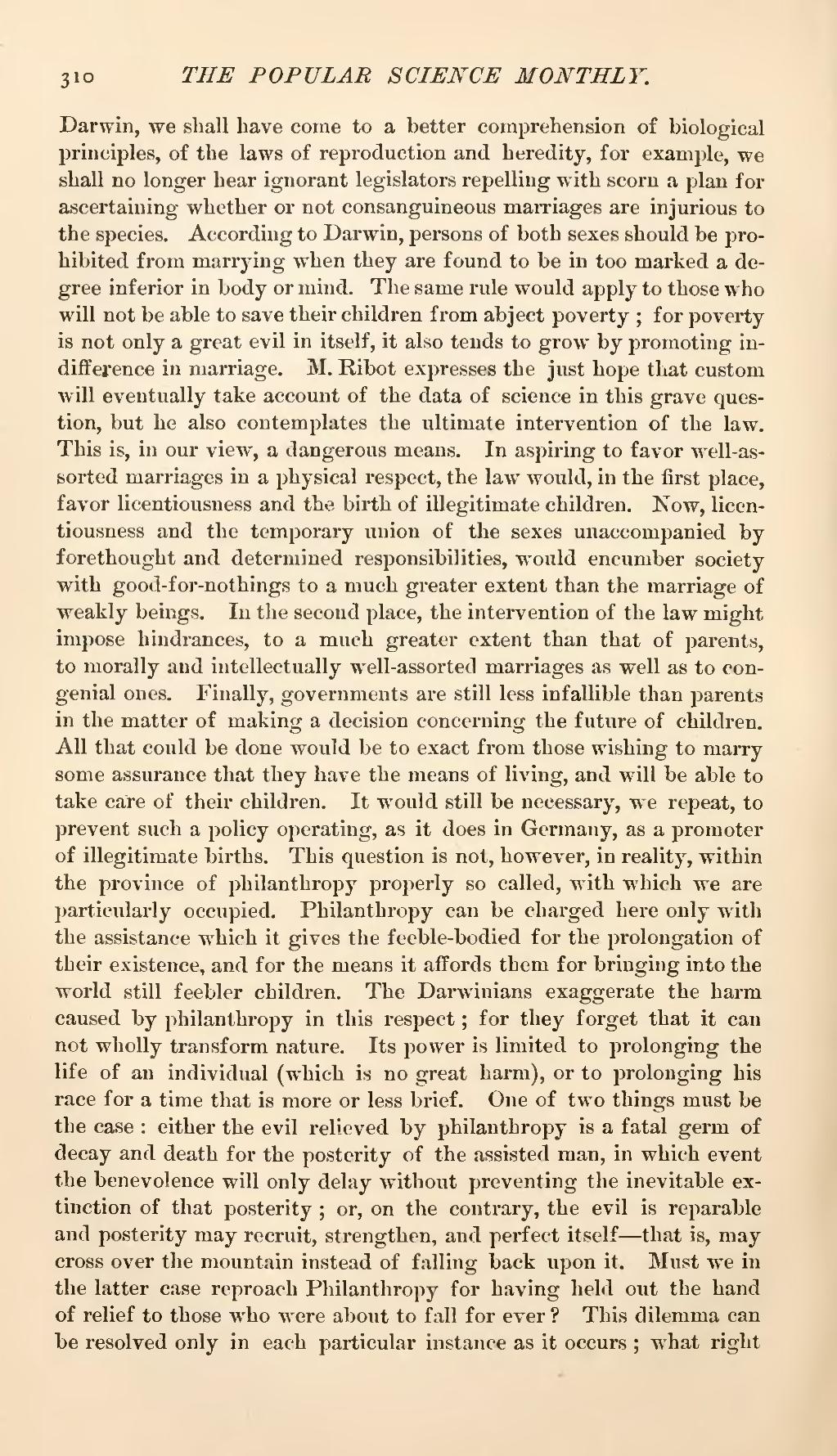Darwin, we shall have come to a better comprehension of biological principles, of the laws of reproduction and heredity, for example, we shall no longer hear ignorant legislators repelling with scorn a plan for ascertaining whether or not consanguineous marriages are injurious to the species. According to Darwin, persons of both sexes should be prohibited from marrying when they are found to be in too marked a degree inferior in body or mind. The same rule would apply to those who will not be able to save their children from abject poverty; for poverty is not only a great evil in itself, it also tends to grow by promoting indifference in marriage. M. Ribot expresses the just hope that custom will eventually take account of the data of science in this grave question, but he also contemplates the ultimate intervention of the law. This is, in our view, a dangerous means. In aspiring to favor well-assorted marriages in a physical respect, the law would, in the first place, favor licentiousness and the birth of illegitimate children. Now, licentiousness and the temporary union of the sexes unaccompanied by forethought and determined responsibilities, would encumber society with good-for-nothings to a much greater extent than the marriage of weakly beings. In the second place, the intervention of the law might impose hindrances, to a much greater extent than that of parents, to morally and intellectually well-assorted marriages as well as to congenial ones. Finally, governments are still less infallible than parents in the matter of making a decision concerning the future of children. All that could be done would be to exact from those wishing to marry some assurance that they have the means of living, and will be able to take care of their children. It would still be necessary, we repeat, to prevent such a policy operating, as it does in Germany, as a promoter of illegitimate births. This question is not, however, in reality, within the province of philanthropy properly so called, with which we are particularly occupied. Philanthropy can be charged here only with the assistance which it gives the feeble-bodied for the prolongation of their existence, and for the means it affords them for bringing into the world still feebler children. The Darwinians exaggerate the harm caused by philanthropy in this respect; for they forget that it can not wholly transform nature. Its power is limited to prolonging the life of an individual (which is no great harm), or to prolonging his race for a time that is more or less brief. One of two things must be the case: either the evil relieved by philanthropy is a fatal germ of decay and death for the posterity of the assisted man, in which event the benevolence will only delay without preventing the inevitable extinction of that posterity; or, on the contrary, the evil is reparable and posterity may recruit, strengthen, and perfect itself—that is, may cross over the mountain instead of falling back upon it. Must we in the latter case reproach Philanthropy for having held out the hand of relief to those who were about to fall for ever? This dilemma can be resolved only in each particular instance as it occurs; what right
Page:Popular Science Monthly Volume 22.djvu/324
310
THE POPULAR SCIENCE MONTHLY.
